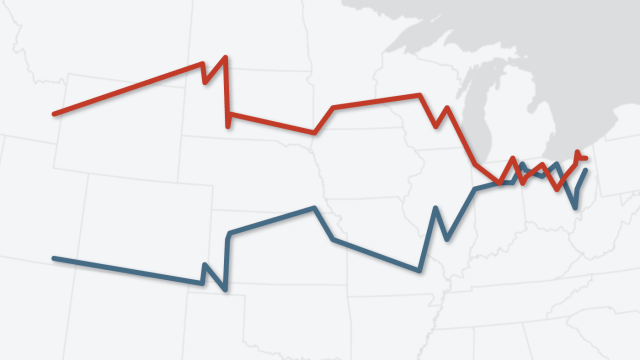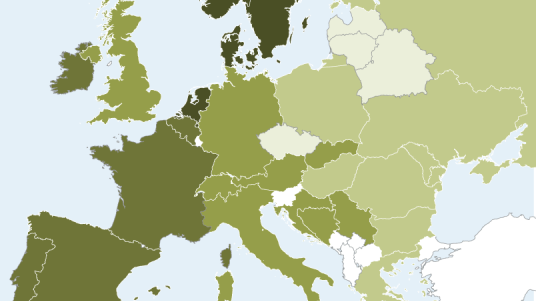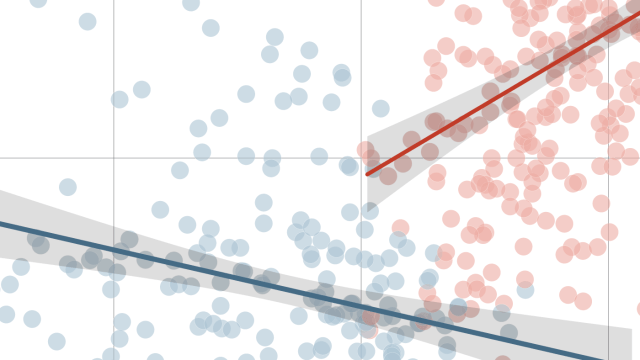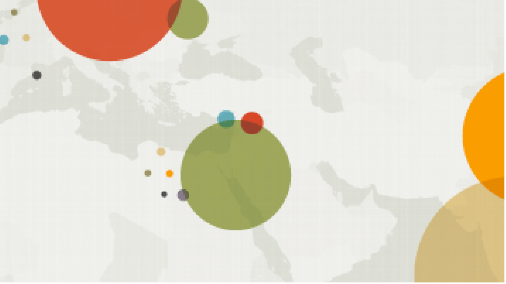

10 facts about Republicans in the U.S.
As Republicans prepare to renominate Donald Trump for president at their national convention in Milwaukee, here are some key facts about the roughly half of registered voters who identify with or lean toward the party.
2024官方澳洲5彩结果号码_官网体彩直播视频 Latest Publications
-
Amid Doubts About Biden’s Mental Sharpness, Trump Leads Presidential Race
Majorities of voters express dissatisfaction with the candidates. And 63% of voters describe both Biden and Trump as “embarrassing.”
Most Popular
Election 2024

Cultural Issues and the 2024 Election
Voters who support Biden and Trump have starkly different opinions on many issues, and these two groups are divided internally as well.
Features
International Affairs | 幸运5澳洲官网+五彩168历史开奖号码-开奖直播视频体彩结果

Satisfaction with democracy has declined in recent years in high-income nations
Many worldwide are dissatisfied with how democracy is working. In several high-income democracies, dissatisfaction has been on the rise since 2021.

Amid war in Gaza, 58% of Israelis say their country is not respected internationally
Most Israelis also feel that antisemitism and Islamophobia are common and that both kinds of prejudice are on the rise globally.

Economic ratings across 34 countries are more negative than positive
A median of about two-thirds of adults (64%) rate their country’s economic situation poorly.

Support for legal abortion is widespread in many places, especially in Europe
Majorities in most of the 27 places around the world surveyed in 2023 and 2024 say abortion should be legal in all or most cases.
Internet & Technology

When Online Content Disappears
A quarter of all webpages that existed at one point between 2013 and 2023 are no longer accessible.

Teens and Video Games Today
85% of U.S. teens say they play video games. They see both positive and negative sides, from making friends to harassment and sleep loss.

A quarter of U.S. teachers say AI tools do more harm than good in K-12 education
High school teachers are more likely than elementary and middle school teachers to hold negative views about AI tools in education.
Race & Ethnicity

Income inequality is greater among Chinese Americans than any other Asian origin group in the U.S.
Among all Asian origin groups in the U.S., Chinese American households had the highest income inequality in 2022.

A Majority of Latinas Feel Pressure To Support Their Families or To Succeed at Work
Many juggle cultural expectations and gender roles from both Latin America and the U.S., like doing housework and succeeding at work.

Asian Americans, Charitable Giving and Remittances
Overall, 64% of Asian American adults say they gave to a U.S. charitable organization in the 12 months before the survey. One-in-five say they gave to a charity in their Asian ancestral homeland during that time. And 27% say they sent money to someone living there.

How Hispanic Americans Get Their News
U.S.-born Latinos mostly get their news in English and prefer it in English, while immigrant Latinos have much more varied habits.

Latinos’ Views on the Migrant Situation at the U.S.-Mexico Border
U.S. Hispanics are less likely than other Americans to say increasing deportations or a larger wall along the border will help the situation.
Our Methods

U.S. Surveys
Pew Research Center has deep roots in U.S. public opinion research. Launched as a project focused primarily on U.S. policy and politics in the early 1990s, the Center has grown over time to study a wide range of topics vital to explaining America to itself and to the world.

International Surveys
Pew Research Center regularly conducts public opinion surveys in countries outside the United States as part of its ongoing exploration of attitudes, values and behaviors around the globe.

Data Science
Pew Research Center’s Data Labs uses computational methods to complement and expand on the Center’s existing research agenda.

Demographic Research
Pew Research Center tracks social, demographic and economic trends, both domestically and internationally.

Decoded
Pew Research Center tracks social, demographic and economic trends, both domestically and internationally.
168澳洲幸运5开奖官网查询 Our Experts
“A record 23 million Asian Americans trace their roots to more than 20 countries … and the U.S. Asian population is projected to reach 46 million by 2060.”

Neil G. Ruiz,
Head of New Research Initiatives
Methods 101 Videos

Methods 101: 2024官方澳洲幸运五开奖 历史记录官网号码直播现场 Random Sampling
The first video in Pew Research Center’s Methods 101 series helps explain random sampling – a concept that lies at the heart of all probability-based survey research – and why it’s important.
Signature Reports

Race and LGBTQ Issues in K-12 Schools
Representative Democracy Remains a Popular Ideal, but People Around the World Are Critical of How It’s Working
Americans’ Dismal Views of the Nation’s Politics
Measuring Religion in China
Diverse Cultures and Shared Experiences Shape Asian American Identities
Parenting in America Today
Editor’s Pick

Who Are You? The Art and Science of Measuring Identity
Electric Vehicle Charging Infrastructure in the U.S.
What Public K-12 Teachers Want Americans To Know About Teaching
8 in 10 Americans Say Religion Is Losing Influence in Public Life
How Americans View Weight-Loss Drugs and Their Potential Impact on Obesity in the U.S.
Most Americans continue to say their side in politics is losing more often than it is winning
Immigration & Migration

How Temporary Protected Status has expanded under the Biden administration
Key facts about Asian Americans living in poverty
Latinos’ Views on the Migrant Situation at the U.S.-Mexico Border
Migrant encounters at the U.S.-Mexico border hit a record high at the end of 2023
What we know about unauthorized immigrants living in the U.S.
Social Media

6 facts about Americans and TikTok
WhatsApp and Facebook dominate the social media landscape in middle-income nations
How Teens and Parents Approach Screen Time
Majorities in most countries surveyed say social media is good for democracy
A declining share of adults, and few teens, support a U.S. TikTok ban
© 2024 Pew Research Center

















